How to export and import environment variables in Insomnia?
Managing environment variables in Insomnia is straightforward. Simply click on "Environment" in the left-hand navigation bar, and you can create and manage your environment variables. Once created, you can use them anywhere in your requests without the need for repetitive input.
In this article, we're going to discuss how to import and export environment variables in Insomnia. Environment variables may sound sophisticated, but in reality, they're quite simple. They function as reusable values that can be easily called in different requests, serving as a set of global settings to streamline interface debugging.
Environment Variables in Insomnia
Managing environment variables in Insomnia is straightforward. Simply click on "Environment" in the left-hand navigation bar, and you can create and manage your environment variables. Once created, you can use them anywhere in your requests without the need for repetitive input. Let's delve into how to import and export environment variables in Insomnia.
Exporting Environment Variables in Insomnia
If you wish to use environment variables from Insomnia in other tools or environments, simply click the "Export" button on the page.
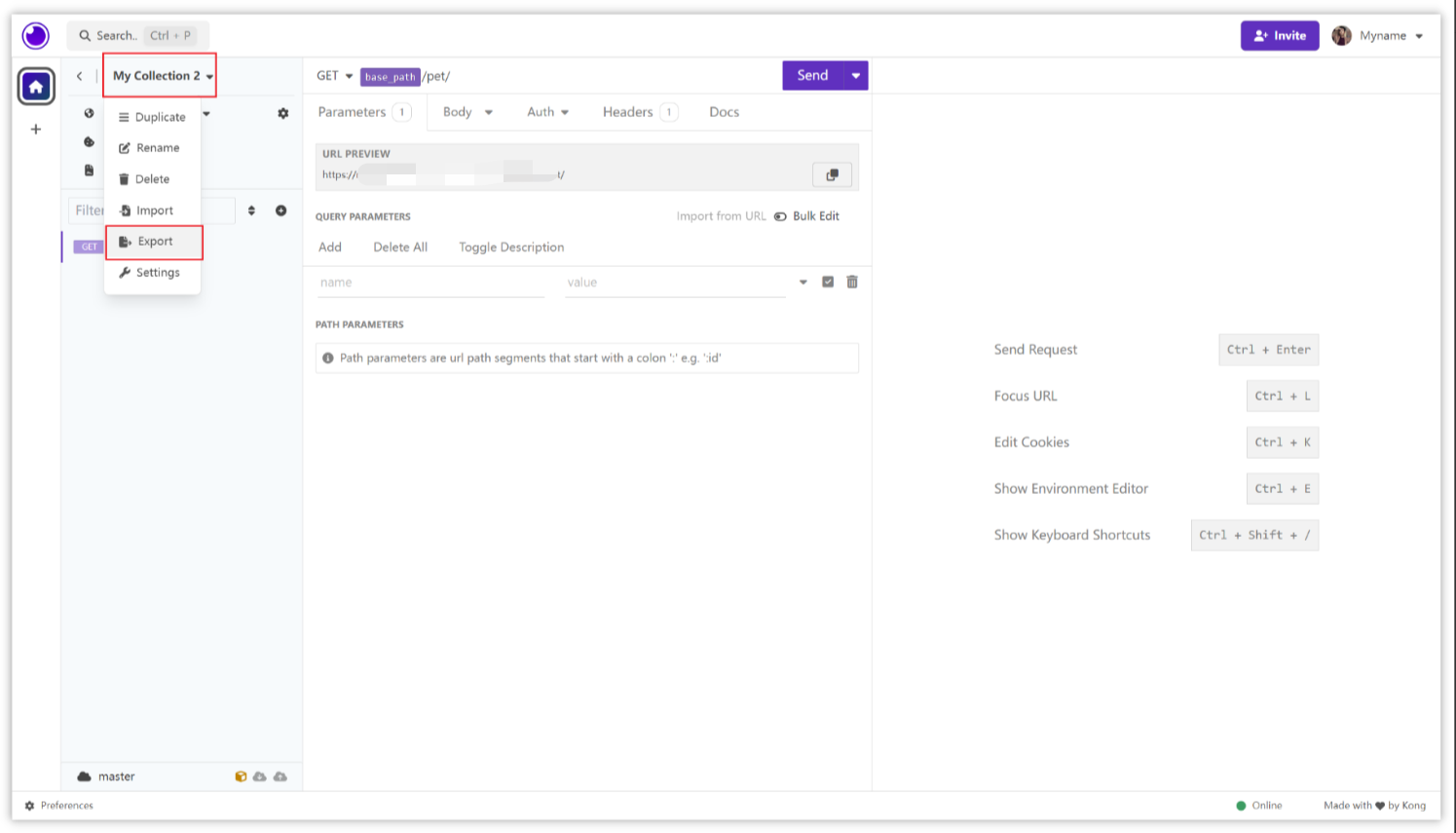
Then choose the format you want to export and save the file. This allows you to easily use these environment variables elsewhere. It's worth noting that the exported JSON file contains not only the environment variables but also interface information. If you only need the environment variable information, consider directly copying the JSON text and sharing it with your colleagues for simplicity.
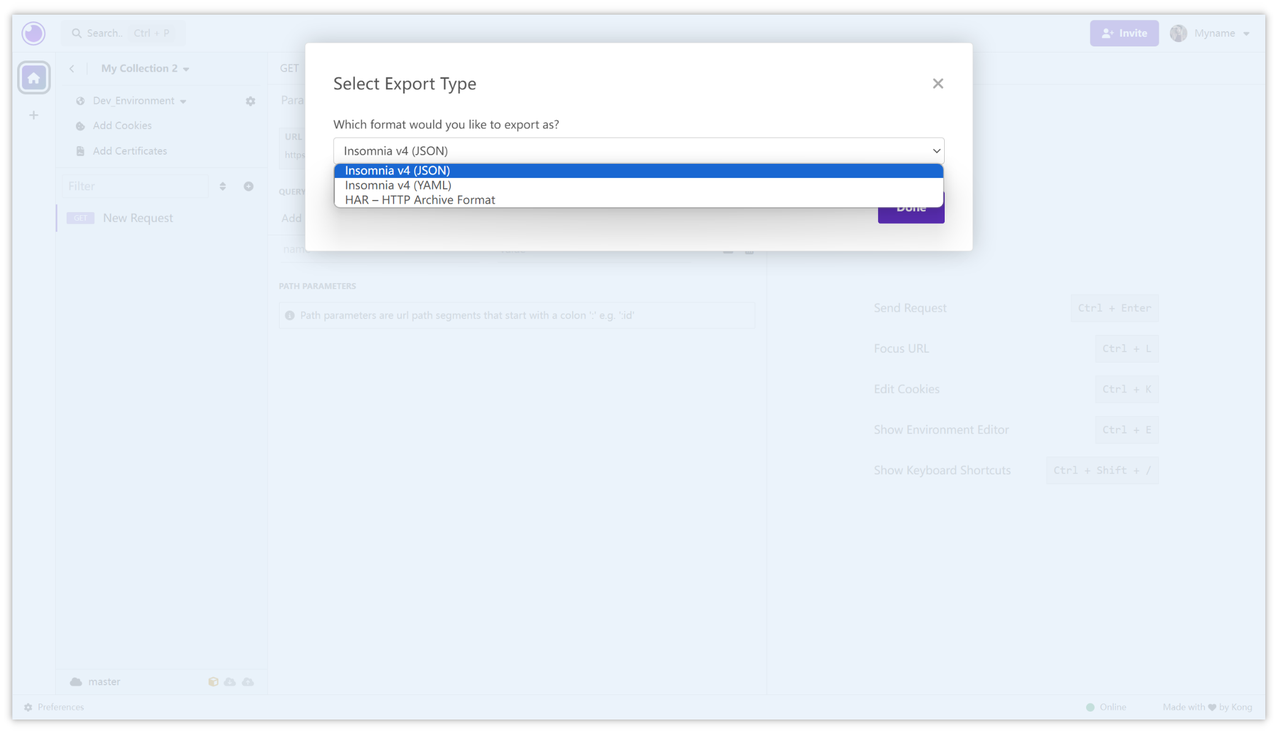
Importing Environment Variables in Insomnia
Now, let's explore how to import environment variables into Insomnia from external sources. This process is also straightforward; just click the "Import" button.
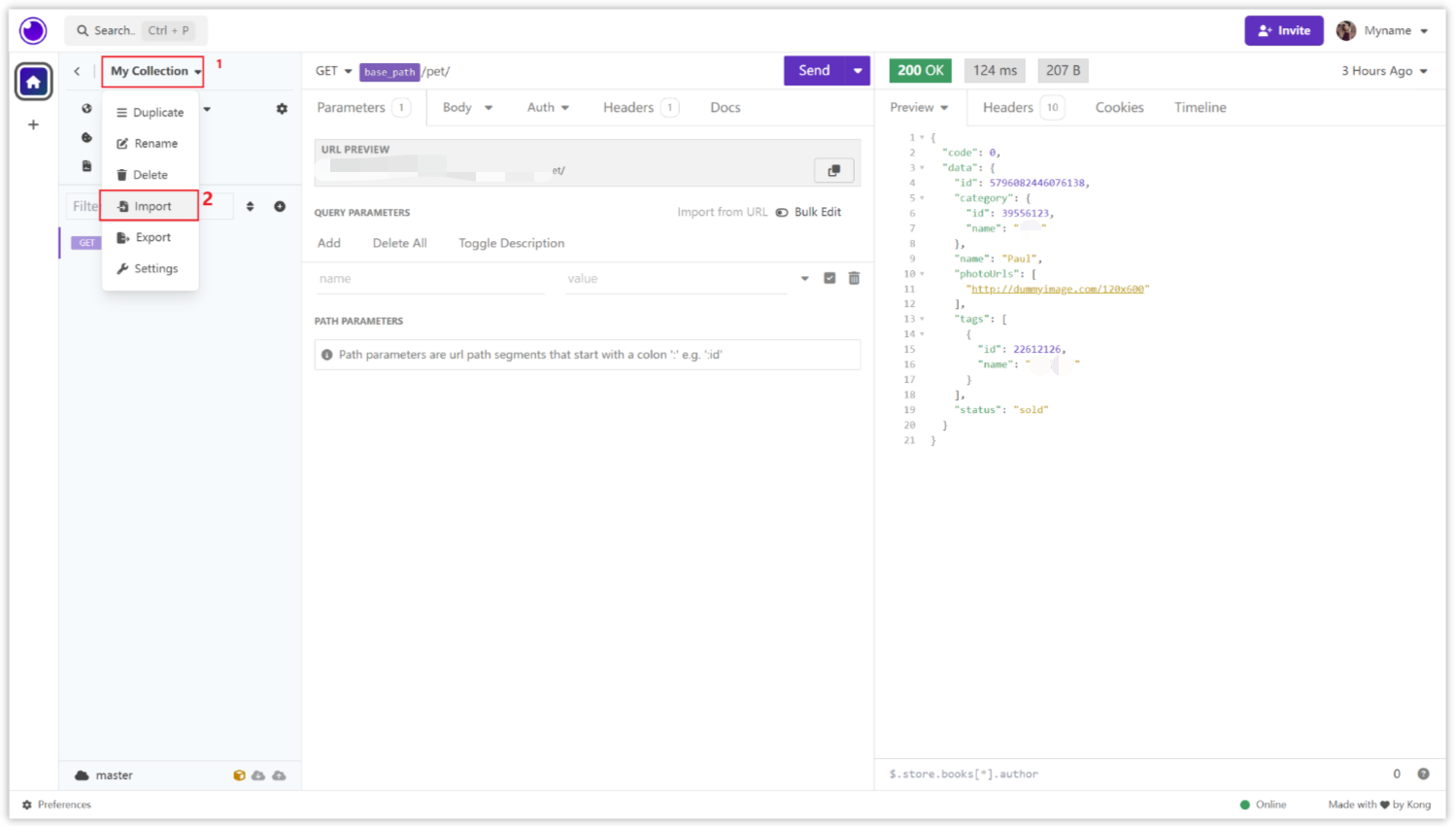
Then select your file.
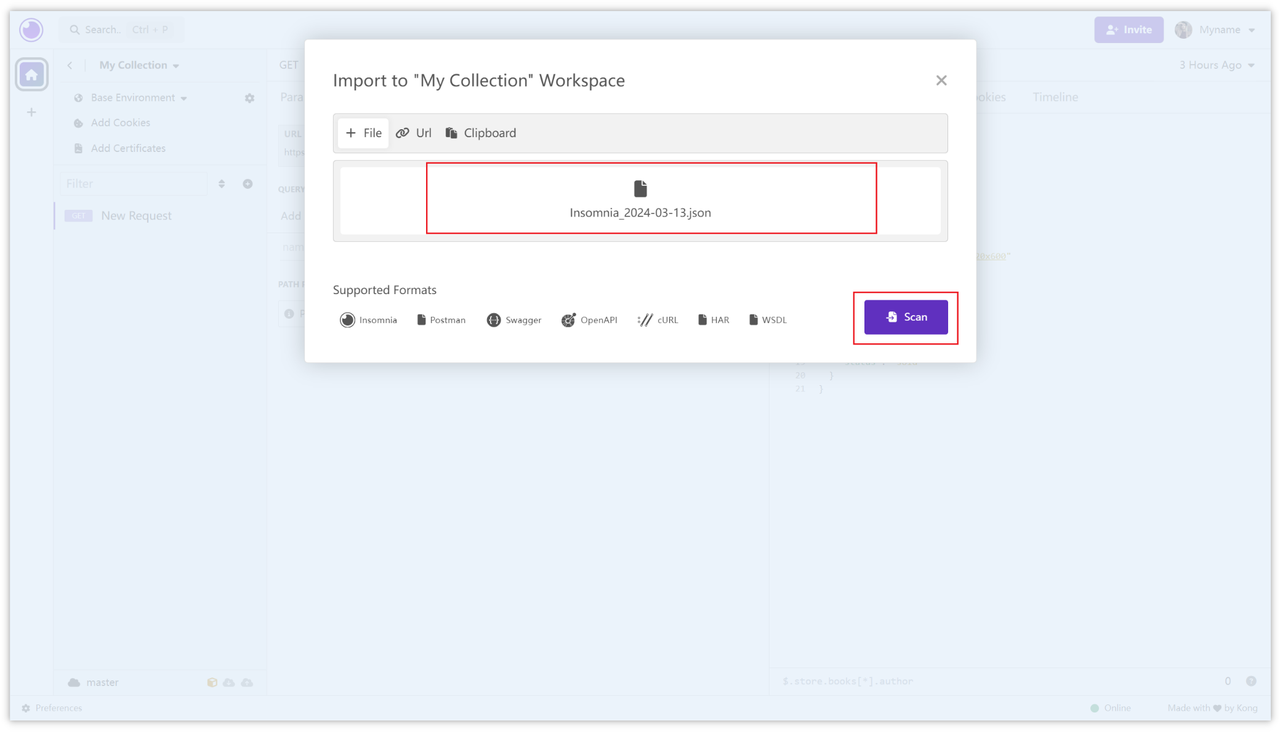
Insomnia will automatically import the environment variables. This enables you to share and use them across different environments.
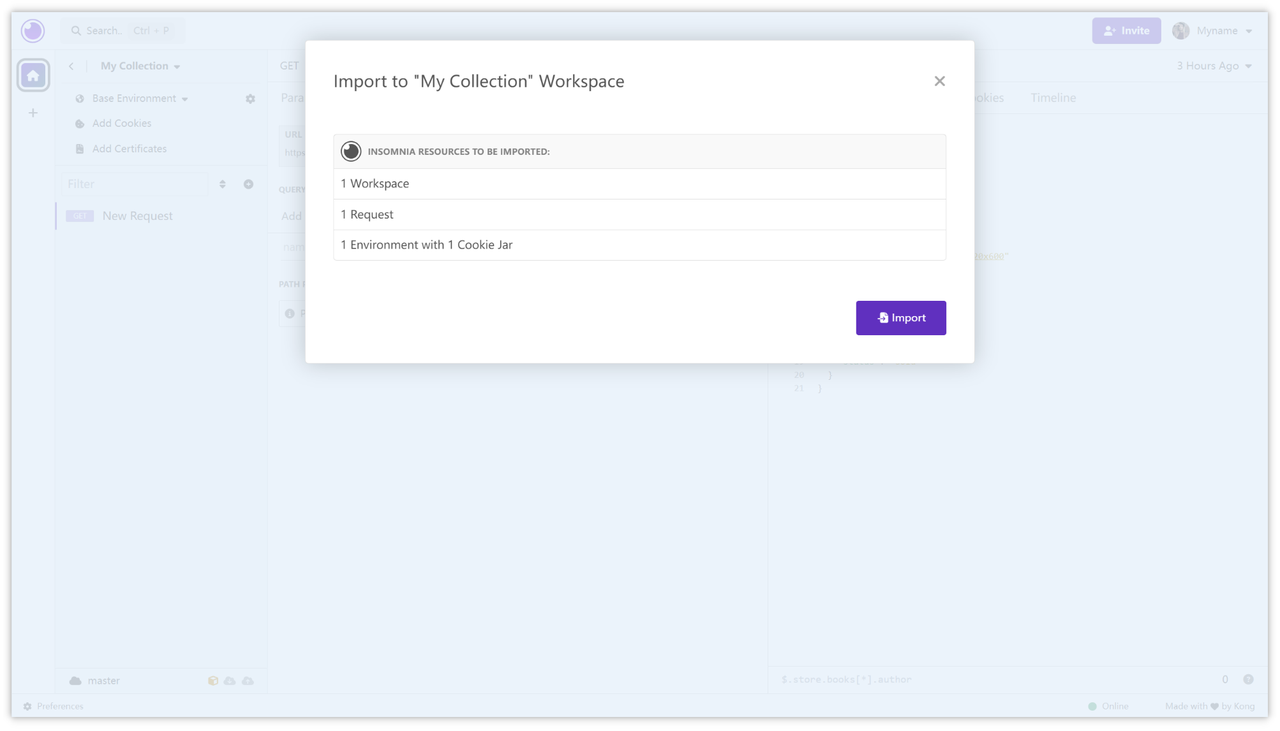
Note that if the environment variables are written in Insomnia's default Base Environment, the import might fail. This could potentially be a bug in Insomnia. To ensure successful import, it's advisable to create a new environment to define the variables.
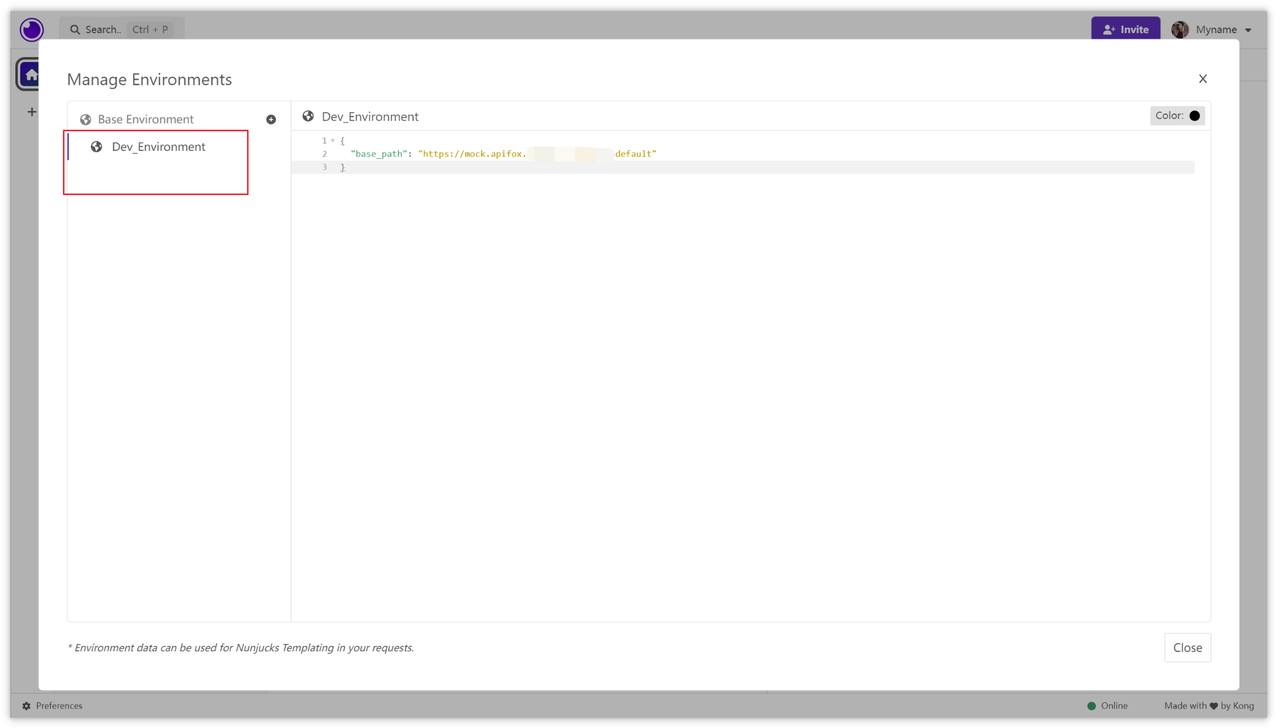
Alternatively, for a simpler approach, you can directly copy the JSON text containing environment variables from your project and paste it where needed.
Conclusion
This article has outlined how to manage environment variables in Insomnia and how to import and export them. Environment variables, as a set of reusable values, facilitate convenient interface debugging. In Insomnia, these variables can be easily managed through simple operations and exported in JSON format for use in other tools.

Learn more:
- How to Export and Import Interface Files (Collections) in Insomnia?
- How to import and export cURL commands in Insomnia?
Learn more:
